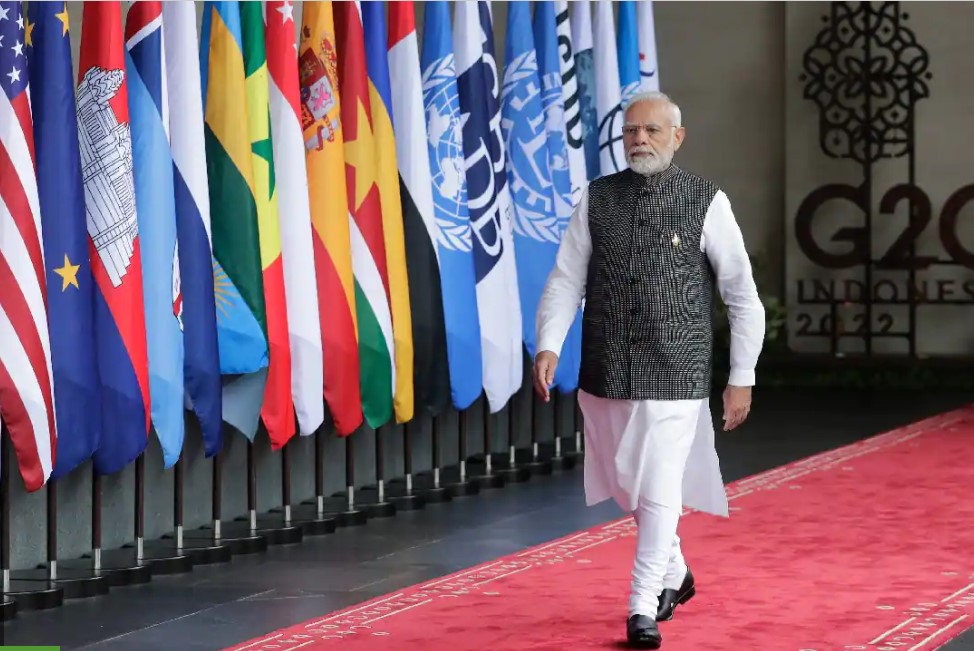India’s presidency of the G20 has come at a tumultuous time in the history of the world. The post Covid world has seen and is seeing a continuous process of shift and alterations, uncertainty for some and conflict for others, with India being increasingly seen and recognised across the world as a centre of stability, as a responsible power which is solution driven and has demonstrated a capacity to engage on positive agendas for global benefit.
When President of India Droupadi Murmu said, that “India which once looked at others for solution to most of its problems, is today emerging as a provider of solutions for the issues faced by the world”, she essentially and pithily described the way in which the world has begun looking at and up to India. In fact, in a changing world this defines India and makes her stand apart. It is this which also makes India’s presidency of the G20 significant and symbolic.
In his concluding address at the historic “Voice of Global South Summit”, convened by him, Prime Minister Narendra Modi observed, “In its development partnerships, India’s approach has been consultative, outcome oriented, demand driven, people-centric, and respectful of the sovereignty of partner countries.” India’s approach and philosophy, shorn of an exploitative mind-set has drawn the attention of the world.
In the recent past when the pandemic had shaken continents and people and the future seemed uncertain with most countries moving inward in a move of self-preservation, India, under Prime Minister Modi, repeatedly displayed the approach of a responsible power which is concerned with the welfare and the future of the world. Indeed this differentiates India from many other countries and their approach and mannerism when it comes to addressing global crises and alleviating its negative impact.
Just as he had called for a human-centric globalisation when the pandemic broke out early 2020, PM Narendra Modi reiterated this futuristic vision in his inaugural address to the “Voice of Global South”, convened at this crucial juncture when India is chairing G20. He proposed, among other things, that:
To re-energise the world, we should together call for a global agenda of ‘Respond, Recognize, Respect and Reform’:
- Respond to the priorities of the Global South by framing an inclusive and balanced international agenda.
- …Recognize that the principle of ‘Common but Differentiated Responsibilities’ applies to all global challenges.
- Respect sovereignty of all nations, rule of law and peaceful resolution of differences and disputes.
- Reform international institutions, including the United Nations, to make them more relevant.
These propositions contain in them some fundamental signposts for how the world can address future challenges and function in the present. Prime Minister Narendra Modi flagged a very vital dimension when he said that the international agenda must be a balanced and inclusive one, the framework of a “common but differentiated responsibilities”, are positions and thoughts which the world will have to increasingly veer around to in order to be able to evolve a credible, workable and lasting framework of cooperation and partnership. Prime Minister Modi drew the attention of the G20 foreign ministers to the persistent imbalance in development and opportunities when he observed that, “No group can claim global leadership without listening to those most affected by its decisions.” The world, he said, “looks upon the G20 to ease the challenges of growth; development; economic resilience; disaster resilience; financial stability; trans-national crime; corruption; terrorism; and food and energy security.” In all these areas, the G20 has capacity to build consensus and deliver concrete results.
India’s G20 presidency is thus full of possibilities and promises. It offers a historic opportunity for the world to understand, recognise and assimilate new paradigms of development and cooperation and a fresh vision of global living and its future. In short, it is a millennial opportunity to, as Prime Minister Modi said, “re-energise” the world.
The writer is a member of the National Executive Committee (NEC), BJP, and the Hony. Director of Dr Syama Prasad Mookerjee Research Foundation. Views expressed are personal.


